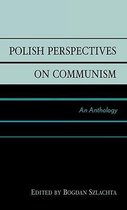Perspectives on the Entangled History of Communism and Nazism A Comnaz Analysis
Afbeeldingen
Sla de afbeeldingen overArtikel vergelijken
Auteur:
Klas-Goran Karlsson
Johan Dietsch
- Engels
- Paperback
- 9781498518727
- 12 april 2019
- 210 pagina's
Samenvatting
This collection explores the questions of whether, how, and why the histories of German Nazism and Soviet Communism could and should be situated within a single coherent narrative. The contributors examine ideology, terror, secular religion, museum exhibits, and denial in order to critically analyze these complex, entangled historical phenomena.
The collective work deals with the problems of if, how, and why the histories of German Nazism and Soviet Communism should and could be situated within one coherent narrative. As historical phenomena, can Communism and Nazism fruitfully be compared to each other? Do they belong to the same historical contexts? Have they influenced, reacted to or learned from each other? Are they interpreted, represented and used together by posterity? The background of the book is twofold. One is external. There is an ongoing debate about the historical entanglements of Communism and Nazism, especially about Auschwitz and Gulag, respectively. Our present fascination with the evil history of genocide has situated the Holocaust as the borderline event in Western historical thinking. The crimes against humanity perpetrated by the Soviet Communist regime do not have the same position but are considered more urgent in the East and Central European states that were subdued by both Nazi and Communist regimes. The other, internal background is to develop an analytical perspective in which the “comnaz” nexus can be understood. Using a complex approach, the authors investigate Communist and Nazi histories as entangled phenomena, guided by three basic perspectives. Focusing on roots and developments, a genetic perspective highlights historical, process-oriented connections. A structural perspective indicates an attempt to narrow down “operational” parallels of the two political systems in the way they handled ideology to construct social utopia, used techniques of terror, etc. A third perspective is genealogical, emphasizing the processing and use of Communist and Nazi history by posterity in terms of meaning and memory: What past is worth remembering, celebrating, debating—but also distorting and forgetting? The chapters of the book address phenomena such as ideology, terror, secular religion, museum exhibits, and denial.
The collective work deals with the problems of if, how, and why the histories of German Nazism and Soviet Communism should and could be situated within one coherent narrative. As historical phenomena, can Communism and Nazism fruitfully be compared to each other? Do they belong to the same historical contexts? Have they influenced, reacted to or learned from each other? Are they interpreted, represented and used together by posterity? The background of the book is twofold. One is external. There is an ongoing debate about the historical entanglements of Communism and Nazism, especially about Auschwitz and Gulag, respectively. Our present fascination with the evil history of genocide has situated the Holocaust as the borderline event in Western historical thinking. The crimes against humanity perpetrated by the Soviet Communist regime do not have the same position but are considered more urgent in the East and Central European states that were subdued by both Nazi and Communist regimes. The other, internal background is to develop an analytical perspective in which the “comnaz” nexus can be understood. Using a complex approach, the authors investigate Communist and Nazi histories as entangled phenomena, guided by three basic perspectives. Focusing on roots and developments, a genetic perspective highlights historical, process-oriented connections. A structural perspective indicates an attempt to narrow down “operational” parallels of the two political systems in the way they handled ideology to construct social utopia, used techniques of terror, etc. A third perspective is genealogical, emphasizing the processing and use of Communist and Nazi history by posterity in terms of meaning and memory: What past is worth remembering, celebrating, debating—but also distorting and forgetting? The chapters of the book address phenomena such as ideology, terror, secular religion, museum exhibits, and denial.
Productspecificaties
Wij vonden geen specificaties voor jouw zoekopdracht '{SEARCH}'.
Inhoud
- Taal
- en
- Bindwijze
- Paperback
- Oorspronkelijke releasedatum
- 12 april 2019
- Aantal pagina's
- 210
- Illustraties
- Nee
Betrokkenen
- Hoofdauteur
- Klas-Goran Karlsson
- Tweede Auteur
- Johan Dietsch
- Co Auteur
- Maria Karlsson
- Hoofdredacteur
- Klas-Goran Karlsson
- Tweede Redacteur
- Johan Stenfeldt
- Co Redacteur
- Ulf Zander
- Hoofduitgeverij
- Lexington Books
Overige kenmerken
- Extra groot lettertype
- Nee
- Product breedte
- 151 mm
- Product hoogte
- 16 mm
- Product lengte
- 223 mm
- Studieboek
- Nee
- Verpakking breedte
- 151 mm
- Verpakking hoogte
- 16 mm
- Verpakking lengte
- 223 mm
- Verpakkingsgewicht
- 322 g
EAN
- EAN
- 9781498518727
Je vindt dit artikel in
- Categorieën
- Taal
- Engels
- Boek, ebook of luisterboek?
- Boek
- Beschikbaarheid
- Leverbaar
- Periode
- Tweede Wereldoorlog
Kies gewenste uitvoering
Kies je bindwijze
(3)
Prijsinformatie en bestellen
De prijs van dit product is 42 euro en 99 cent.
3 - 4 weken
Verkoop door bol
- Prijs inclusief verzendkosten, verstuurd door bol
- Ophalen bij een bol afhaalpunt mogelijk
- 30 dagen bedenktijd en gratis retourneren
- Dag en nacht klantenservice
Rapporteer dit artikel
Je wilt melding doen van illegale inhoud over dit artikel:
- Ik wil melding doen als klant
- Ik wil melding doen als autoriteit of trusted flagger
- Ik wil melding doen als partner
- Ik wil melding doen als merkhouder
Geen klant, autoriteit, trusted flagger, merkhouder of partner? Gebruik dan onderstaande link om melding te doen.








